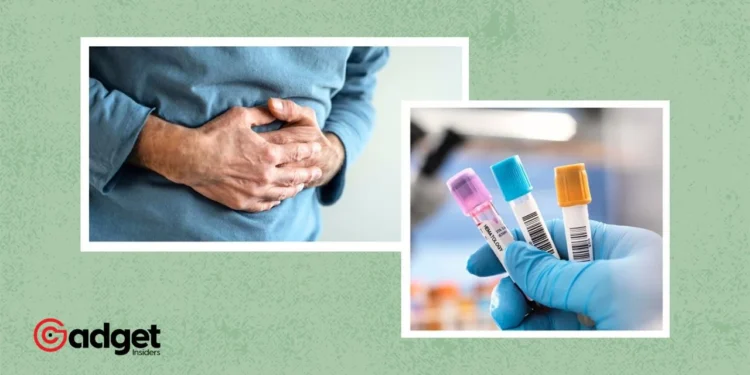In a world that grapples with an ever-evolving landscape of health challenges, one phenomenon stands out with particular concern: the increasing incidence of cancer among young adults. This trend, underscored by the poignant stories of individuals like a 16-year-old from China with a type of cancer usually seen in those much older, has caught the attention of medical professionals worldwide. It begs the question: Why are so many young people getting cancer?

Unpacking the Global Surge in Early-Onset Cancers
Dr. Cathy Eng, an oncologist at Vanderbilt University Medical Center, and Dr. George Barreto, a surgeon now at Flinders University, share a disturbing observation: This disease traditionally associated with older age groups is now affecting younger individuals at alarming rates.
This isn’t a localized phenomenon; from Texas to Mumbai, the narrative remains consistent, painting a worrisome picture of the state of global health. Research confirms what these doctors have witnessed firsthand. The incidence of more than a dozen types of cancer is on the rise among adults under 50.
This includes, but is not limited to, colorectal, pancreatic, and stomach diseases. In the United States alone, colorectal disease has become the leading cause of death among men under 50 and ranks second among young women. This uptrend is not confined to the U.S.; it is a global crisis, with early-onset cancer cases predicted to rise by about 30% between 2019 and 2030.
Global cancer phenomenon – Australia leads followed by NZ
Globally, Australia has seen the highest number of early-onset cancer diagnoses in the world .
Look at the graph & see the timeline of this huge increase in cancer in Aus & NZ from 2020.
What could it possibly be.… pic.twitter.com/DJee54vLGy
— verica (@VDejan0000) March 15, 2024
The Search for Answers
As the medical community races to understand this shift, several theories have emerged. Rising obesity rates and the advent of early cancer screening practices are among the suspected contributors. However, these factors alone cannot fully explain the uptick.
The search for answers has extended into the realms of genetics, the gut microbiome, and even the impact of environmental exposures dating back to prenatal development.
This complex interplay of factors signifies that there’s no single culprit behind the rise in cancer among the young. Instead, it suggests a mosaic of influences, including lifestyle choices, dietary habits, and possibly, changes in our environment that have yet to be fully understood.
The Fight Against Early-Onset Cancer
The shift in cancer demographics has galvanized efforts to lower the age for recommended screenings, particularly for colorectal disease. Following the tragic death of actor Chadwick Boseman from colon cancer at 43, there’s been a notable push towards raising awareness and advocating for early detection.
Regions like Alaska have taken proactive steps, recommending screenings start as early as 40 for Alaska Native people, a demographic seeing a stark rise in cases.

Yet, despite increased screening and awareness, the battle is far from over. The challenge of overcoming logistical hurdles for screenings in remote areas, coupled with the need for continued research into the genetic and environmental factors at play, underscores the complexity of this issue.
Bridging Gaps and Looking Forward
The journey to unravel the mystery of rising rates among the young is fraught with challenges but not without hope. Initiatives to enhance understanding of the genetic markers and environmental exposures linked to early-onset cancer are underway.
International collaborations are pivotal in this endeavor, offering a broader dataset for analysis and a more comprehensive view of this global issue. As we navigate this uncharted territory, the stories of young individuals battling diseases once thought reserved for older generations serve as a stark reminder of the urgent need for action.
The medical community’s dedication to uncovering the root causes of this trend, alongside advancements in screening and treatment, lights the path forward in this crucial fight against cancer.
The narrative of cancer is changing, and with it, our approach to diagnosis, treatment, and prevention must evolve. As we peel back the layers of this complex issue, the goal remains clear: to understand, to adapt, and ultimately, to overcome.
The fight against early-onset cancer is not just a medical challenge; it’s a call to action for society at large to address the underlying factors contributing to this alarming trend and to safeguard the health of future generations.










